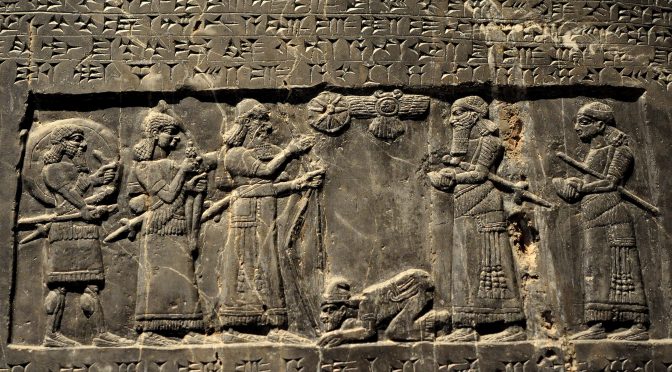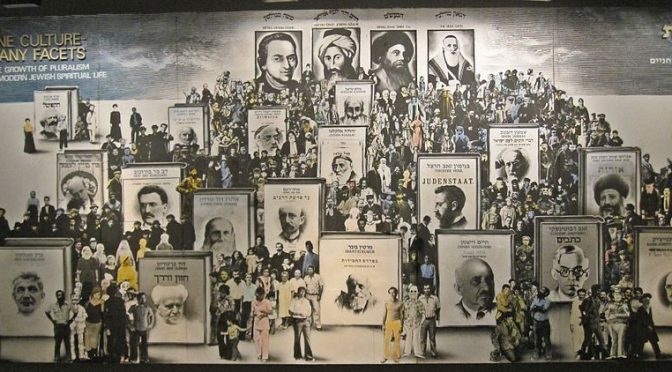The international conference “The Strange and the Familiar: Identity and Empire in the Ancient Near East” will take place at the University of Helsinki on August 23–24, 2019. The location of the conference is Porthania P673, Yliopistonkatu 3. The conference is generously hosted by the Centre of Excellence in Changes in Sacred Texts and Traditions (CSTT), the Centre of Excellence in Ancient Near Eastern Empires (ANEE), and the Finnish Institute in the Middle East (FIME).
Friday, August 23
9:10 – 9:30 – Gina Konstantopoulos; University of Helsinki
Defining Others, Defining Ourselves: Constructing Identity in Empire
Center and Periphery in the Late Bronze Age:
9:30 – 10:15: Müge Durusu-Tanrıöver, Bilkent University
The Identities of an Empire: The Case of the Hittite Empire and its Borderlands
10:15 – 11:00: Phillip Strosahl, University of Pavia
Identity and Place: The Use of Ālu and Mātu to Define People in Syria Under the Hittite Empire
11:00 – 11:15: Coffee Break
11:15 – 12:00: Jacob Lauinger, Johns Hopkins University
Imperial and Local: Audience, Identity, and the Idrimi Inscription
12:00 – 12:45: František Válek, Charles University
Foreigners and Religion at Ugarit
12:45 – 2:00: Lunch Break
Assyria and Babylonia
Moderator: Caroline Wallis, University of Helsinki
2:00 – 2:45: Jonathan Valk; Universiteit Leiden
An Empire State of Mind: Domesticating the Other in the Assyrian Empire
2:45 – 3:30: Johannes Bach; University of Helsinki
On the Use of Similes in MA Royal Texts
3:30 – 4:00: Coffee Break
4:00 – 4:45: Ben Dewar, University of Birmingham
The Burning of Captives in the Assyrian Royal Inscriptions and Early Neo-Assyrian Conceptions of the Other
4:45 – 5:30: Eva Miller, University College London
Drawing Distinctions: Assyrians, Enemies, and Others in Neo-Assyrian Art
7:00: Dinner for Conference Participants
Saturday, August 24:
Assyria and Babylonia
Moderator: Johannes Bach; University of Helsinki
9:00 – 9:45: Güzin Eren, Boston University
Imperial Identity by Architecture: The Fortifications of Sardis in the Late 7th and 6th centuries BCE
9:45 – 10:30: Marta Lorenzon and Melanie Wasmuth, University of Helsinki
Where is the Border? Shifts in the South-Western Fringe Zone of the ANE Empires in the 1stMillennium BCE
10:30 – 10:45: Coffee
10:45 – 11:30: John P. Nielsen, Bradley University
Assyrian Engagement with Chaldea and the Emergence of Chaldean Power in Babylonia
11:30 – 12:15: Michael Kozuh, Auburn University
The Roving Other: Shepherds, Ungovernable Spaces, and Imperial Authority
12:15 – 1:30: Lunch
Successors of Mesopotamia: Later Empires and Biblical Traditions
Moderator: Jason Silverman, University of Helsinki
1:30 – 2:15: Silvia Balatti, Kiel University
Being Yauna: the Limits of Imperial Integration at the Western Margins of the Achaemenid Empire
2:15 – 3:00: Jennifer Finn, Marquette University
Making a Third Space in Susa: Achaemenid Displays of the Periphery in the Center
3:00 – 3:30: Coffee
3:30 – 4:15: Ehud Ben Zvi, University of Alberta
The Art of Bracketing Empire Out and Creating Parallel Worlds: The Case of late Persian Yehud
4:15 – 5:00: Hanna Tervanotko; McMaster University
“You Must Now Learn to Imitate the Abhorrent Practices of those Nations:” Ancient Jewish Texts and Polemics against Divination
5:00 – 5:45: Martti Nissinen and Saana Svärd; University of Helsinki
Response and Final Discussion
—
For further information and questions, please contact Gina Konstantopoulos: gina.konstantopoulos@helsinki.fi
Cover photo by Osama Shukir Muhammed Amin FRCP(Glasg), CC BY-SA 4.0, https://commons.m.wikimedia.org/wiki/File:The_Assyrian_king_Shalmaneser_III_receives_tribute_from_Sua,_king_of_Gilzanu,_The_Black_Obelisk..JPG



